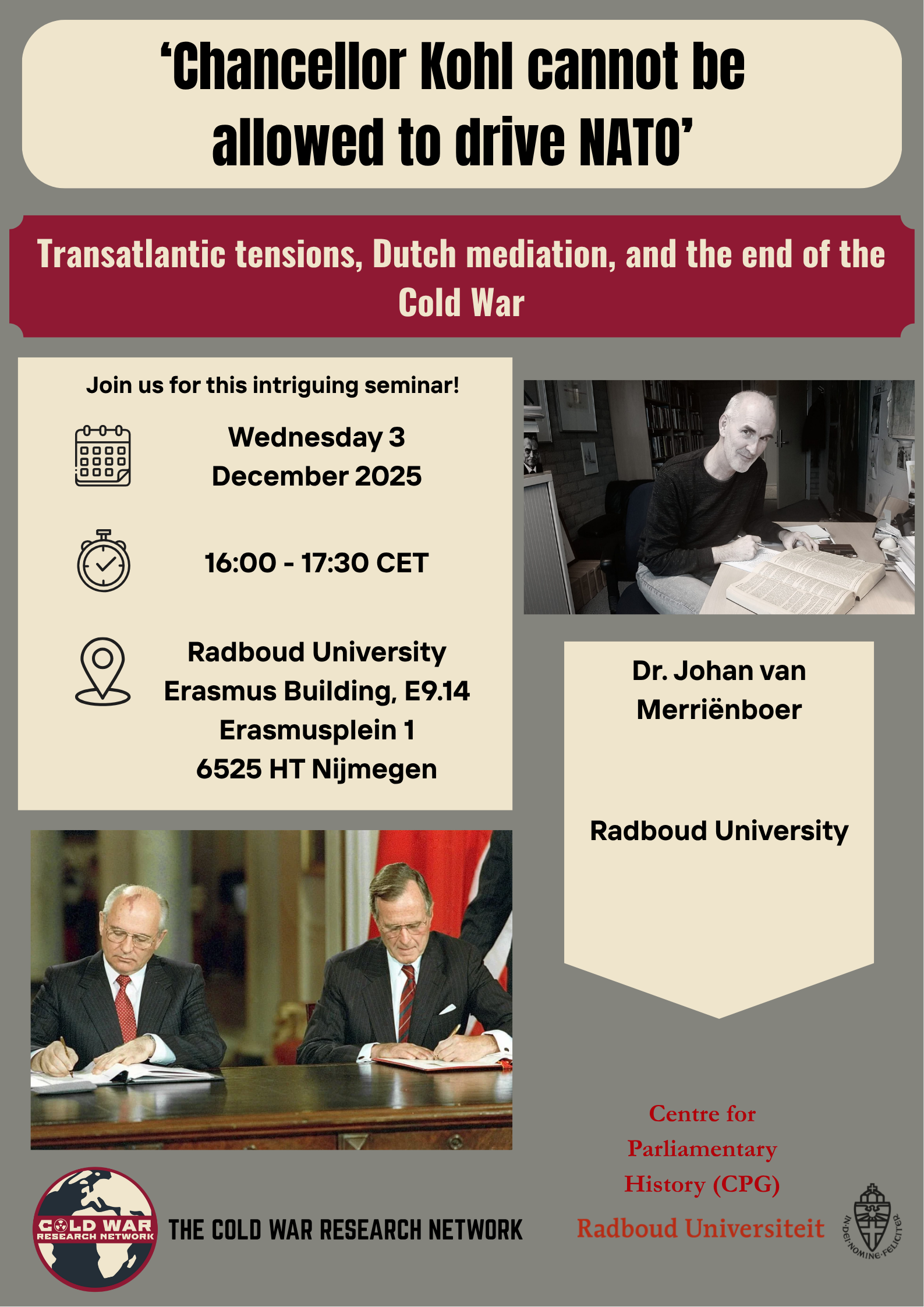Lecture by Johan van Merriënboer: ‘Chancellor Kohl cannot be allowed to drive NATO’
The Dutch Centre for Parliamentary History (CPG), in collaboration with the Cold War Research Network, is pleased to host a lecture by Johan van Merriënboer on Dutch Prime Minister Ruud Lubbers’s (r. 1982 – 1994) role during the final phase of the Cold War. The title refers to a striking remark made by U.S. President George H.W. Bush (r. 1989 – 1993) to Lubbers in the Oval Office on 9 May 1989: ‘Chancellor Kohl cannot be allowed to drive NATO.’
In this lecture, Dr. Van Merriënboer will discuss Lubbers’s behind-the-scenes diplomacy in the spring of 1989, when tensions within NATO over the modernization of short-range nuclear weapons coincided with shifting Western attitudes toward Mikhail Gorbachev’s reform policies and the Soviet leader’s growing popularity, especially in the Federal Republic of Germany under Chancellor Helmut Kohl (1982 – 1998). Drawing on archival research and Lubbers’s memoirs, the talk will highlight how the Dutch Prime Minister positioned the Netherlands as a mediator between the United States and West Germany, contributing to the formulation of a new American strategy for Europe and the Soviet Union. In this way, Dutch diplomacy played a significant part in creating the favourable political climate, the so-called ‘Wind of Change,’ that paved the way for the peaceful end of the Cold War.
Speaker:
Johan van Merriënboer (b. 1962) studied History and Dutch Law at Utrecht University. He is Senior Research Fellow at the Dutch Centre for Parliamentary History (CPG) at Radboud University Nijmegen, has contributed to the Parliamentary history of the Netherlands after 1945 series, and co-authored the biographies of Prime Ministers De Jong (2001), Van Agt (2008), and Lubbers (2024).

Back

